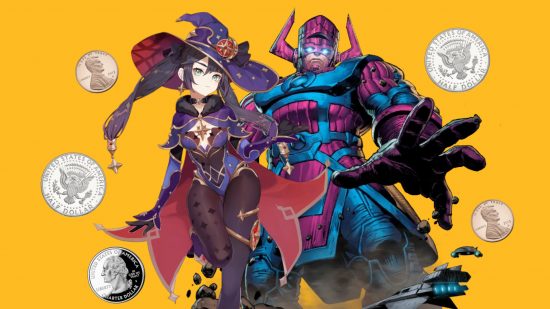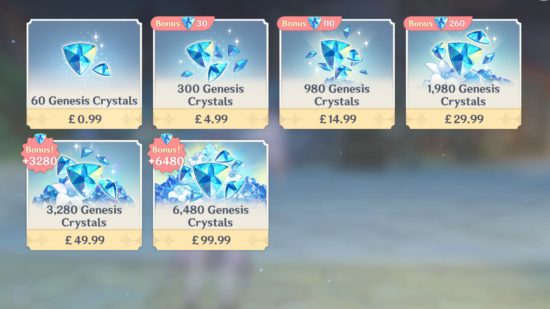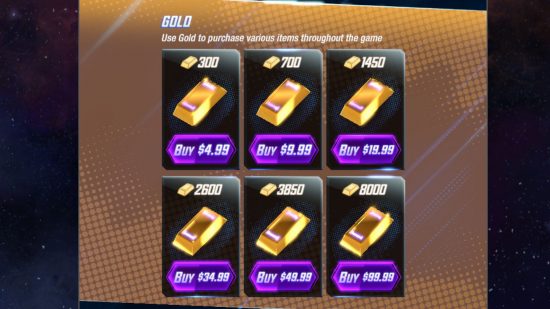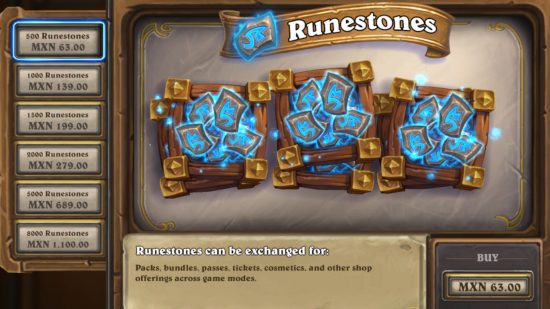Microtransactions are a divisive subject in gaming. Some of us have spent hundreds on extra content, while others have never even spent 99 cents on a few extra Candy Crush lives. But there’s a clear problem with the practice in its current state, and that’s the concept of forced change. So, let me explain.
Many popular games like Marvel Snap, Genshin Impact, and Project Sekai feature microtransaction bundles you can often only buy with in-game currency. The problem is that these bundles rarely, if ever, line up with the price of the currency packages. For example, we can look at the latest Marvel Snap bundle, the Rivalry Week pack, which costs 4,000 gold. Assuming you have zero gold, the only option is slightly under the amount with a 3,850 gold purchase or almost double the amount you need with the maximum 8,000 gold offering. There’s no in-between.
That’s a pretty particular example, but it rings true across the board. Of course, the excuse of the developers is probably something along the lines of “you can earn gold, so just save your gold” which is all well and good, but why give us so many things to buy then? It’s also interesting in the case of Marvel Snap that the one gold bundle that does line up with in-game pricing is the 700 gold bundle, which you can trade right away for a rare variant. There’s no forced change there, but with the daily offer variants refreshing every day, you could be forgiven for saying that this pushes players to spend more if they see a variant they like.
Still, like I say, it’s not just Marvel Snap’s dodgy business. It’s pretty standard practice across live service and supposed free-to-play titles. In our investigation, Daz noticed that of all the Genshin Impact’s genesis crystal packages – containing the resource you turn into primogems you can spend – there isn’t a single package that divides perfectly into 160. If you’re wondering why 160 is a pivotal number, that’s because it’s the price of a banner pull in the game. So no matter if you go for the most basic or expensive package, you’re always going to have some loose primogems.
At this point, you’re probably wondering, what’s wrong with a bit of change? It’s fairly simple. By leaving players with just enough currency to do nothing with after they make the main purchase, they inspire a further transaction to make the numbers up, even if it’s from the smallest available package. Essentially, you buy 1,450 gold in Marvel Snap and then spend 1,000 on a bundle. Outside of daily mission refreshing, you can do nothing with 450 gold, so you buy a further 300 gold to get the 700 required for a variant. Then there’s still 50 gold left, and the whole process begins again.
Of course, we can’t accuse Marvel Snap and Genshin Impact of being the forefathers of this forced change practice. The true pioneers are the likes of EA, with FIFA embracing messy microtransactions since the dawn of the ultimate team mechanic, while King has been cajoling your grandma into spending half her pension since the early 2010s. Candy Crush has a particularly cruel example of the concept, with six hours of unlimited lives priced at 69 gold. Considering you can only buy gold in even packs of ten, you’d have to accumulate 70 gold to spend on unlimited lives ten times before having anything useful in the form of change.
We should say that we’re not the only ones unhappy about this, and in the case of Marvel Snap, the vitriol from the community has got so intense that Second Dinner has now started introducing more bundles you can purchase with real money, getting rid of the gold middleman. It’s still a mixed bag, though, and only two of nine bundles are available to buy with straight cash throughout March. The rest require a sum of gold, and surprise, none of them match up with a gold pack purchase option.
There’s a light at the end of the tunnel, though. Some games are learning from their mistakes. Take Hearthstone, which just last year added a brand new currency to replace some of the gold options. In the years building up to the change, Hearthstone faced much criticism over its in-game microtransactions, but the addition of runestones, and the developer’s pricing things in line with runestone bundles, has certainly gone a way to appease the card-playing community.
Still, with Hearthstone dwindling in the wake of Marvel Snap and Genshin Impact inspiring countless imitators that include copycat microtransaction systems, we can’t see a change coming unless we force it. Marvel Snap content creators seem to know this too, with few mincing their words when accusing Second Dinner and the studio’s overloads NetEase, of purposely using predatory tactics when pricing in-game bundles and items.
Much like the price of a Starbucks coffee or refuelling your car, the overbearing nature of microtransactions and forced change is one of the more depressing elements of the ever-growing nature of capitalism that leaves so many of us feeling helpless. So, what can you do?
You need to make a noise. That’s what the Hearthstone community did. That’s what the Marvel Snap community is doing right now, with limited success. Vlog about it, write about it like we are right now, quote the legendary line from 1976’s perpetually-relevant Network, in which the lead anchor of a cable news show cries out “I’m mad as hell, and I’m not going to take this anymore!” Don’t get personal, this isn’t a call to arms for vicious online attacks at developers, but leave them feedback, or rate the game and leave your honest opinions. Use your voice.
Nothing is going to change if we don’t all say enough is enough. A gaming community often doesn’t realise the power it has to change things, but just look at what we’ve done. We got loot boxes removed from Star Wars Battlefront II. We got Halo Infinite polished so it actually looked impressive on release. Hell, we even made it so that Sonic didn’t look like a CGI nightmare brought to life in his debut motion picture. There’s power in the united voice, so use it.
All of this is said with the understanding that free-to-play games are reliant on microtransactions and we’re not saying we want an authoritarian end to the freemium concept. We don’t anticipate that changing and we appreciate that in a live service game, it offers both free-to-play users and premium players a way to enjoy the game as they see fit. We just want an end to the loose change that rattles around your digital pockets, perpetually pushing you to pick up another currency package to make enough for a bundle or a pull, with more forced change coming back to you in a maddening loop.
The future of gaming is in our hands here. As the studios unionise and smaller developers test new ways to deliver content, we players need to take inspiration as communities. While we still don’t know if a tree falling in an empty forest makes a sound, we do know that a title doesn’t make money if no one is playing it, or if there’s a collective agreement to stop falling for industry tricks. The times we live in are divisive, sure, but if moaning about pricing in a video game can’t bring us together, I don’t know what can.
This is a collaborative article from Pocket Tactics writers Connor Christie and Daz Skubich. For more deep dives, check out our Yoko Taro interview and Monument Valley interview retrospective.
















